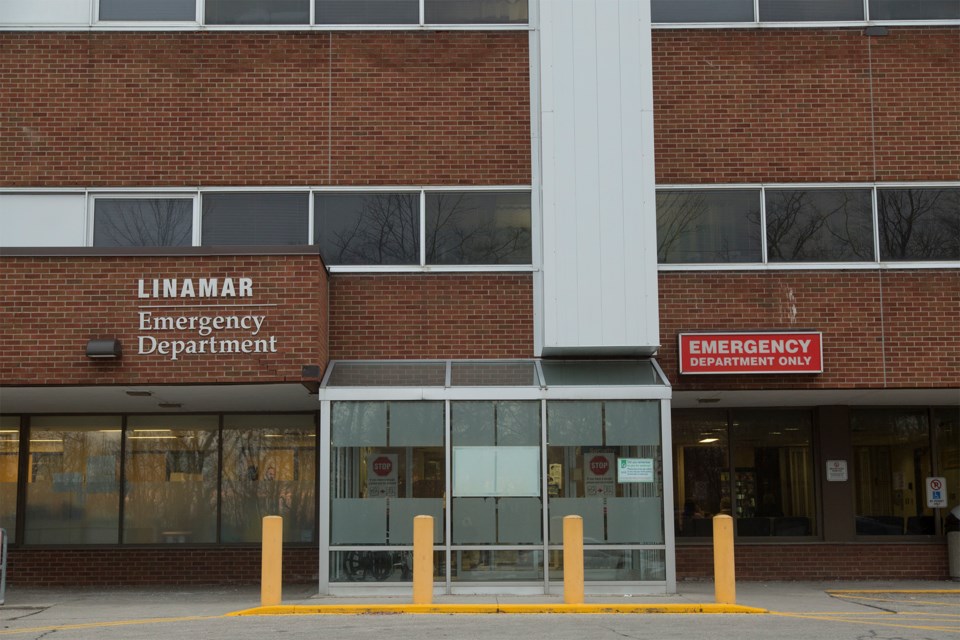A local man is seeking a coroner’s inquest into the 2015 shooting death of Brandon Duncan.
Social activist Alan Pickersgill, who describes himself as a concerned citizen, feels that everyone in Guelph and across the province should be troubled by the shooting of Brandon Duncan. Duncan, who was struggling with numerous mental and physical health challenges, was shot dead in a hospital emergency department.
“That such a death could occur where, when and how it happened should be of urgent concern to the people of our city and province,” writes Pickersgill in his letter to the Office of the Chief Coroner of Ontario.
Pickersgill has written the coroner asking for an inquest into the incident. An inquest could help prevent a similar incident.
He has also written two blog posts on the subject of Duncan’s death in an effort to garner community support for the idea.
In an interview, Pickersgill said he is not sure how effective his letter will be at sparking an inquest, but he believes something must be done to better understand the incident and to keep such tragedies from happening.
Duncan, 36, was killed nearly one year ago after he went to the hospital for medical care. The May 20, 2015 incident was reported across the country. He was known to be a frequent user of the emergency department.
People who knew Duncan said he had been homeless for a number of years. In the days leading up to his death, he had been staying at a local homeless shelter.
He battled addiction and mental illness, and suffered from Crohn's disease for over 20 years, a condition that required several surgeries. Friends said he had severe health care challenges and could not pay his medical expenses.
Duncan had frequent problems maintaining his colostomy bag, and was tending to the bag at the time of the incident, having been given a pair of scissors by a nurse in the emergency department, according to evidence.
The Special Investigations Unit carried out a lengthy investigation, and about 10 months after the incident made a determination that there were no reasonable grounds for laying charges against the two Guelph Police officers that shot Duncan six times.
Seven witness officers and over 20 civilian witnesses were interviewed, and eight surveillance cameras were examined.
The investigation found that Duncan was wielding the pair of scissors, and had attempted to jab a female with them. When the two officers approached, Duncan turned the scissors on them and moved quickly towards them. The officers backed up, but Duncan continued to advance. Within four seconds, the officers discharged their weapons.
While the SIU investigation concluded there was no wrongdoing on the part of the officers, Pickersgill believes there are several outstanding questions that need to be answered.
“The SIU investigation cleared the two officers and that’s the end of that,” he said. “But recommendations for future prevention can only be done through a coroner’s inquest. It is really the only avenue left.”
He and others want to know if there were procedural failures related to safety on the part of the hospital, and whether procedures were in place that would have allowed hospital personnel to deal with the situation.
A new partnership between the Guelph Police Service and the Canadian Mental Health Association Waterloo Wellington Dufferin was announced just over a month before the incident. It was aimed at improving police responses to a mental health crisis. Pickersgill said the public has a right to know if something was lacking in that initiative.
All those who come to the hospital should feel safe, Pickersgill stated in his letter to the coroner’s office. The inquest could service to formulate recommendations “to help first response emergency workers and on-site health care professionals improve their own safety and that of the people for whom they are responsible.” Those recommendations could assist other major hospitals across Ontario.
In the weeks immediately after the incident, Guelph General Hospital president and CEO Marianne Walker said extensive new safety measures, including enhanced training, was underway.
More recently, Walker told GuelphToday that safety was being improved on an ongoing basis.
“I think that anytime there is an interaction between the police and a member of the public that ends in a fatality, there should be a mandatory coroner’s inquest,” Pickersgill said. Such mandatory inquests are common after workplace deaths, he added.
“I would like to see that extended to incidents involving police fatalities as well, just to find out what happened and how it can be prevented again,” he said.
